vet_student07
New Member
- Joined
- Oct 3, 2008
- Messages
- 10
- Reaction score
- 0
I know I keep posting here guys, but I really do need your help.
I stopped treatments recently and just kept making sure Casper (My CT betta) had clean water (with just a little bit of salt) because none of the meds helped him (I've been trying to treat him for what I thought was fin rot, as the tips of his fins were disappearing slowly (not tail biting))
Since I stopped the treatment his tail suddenly got worse (a lot worse, about 3mm now looks dead on each part), his pectoral fins have a lot more black spots and lines on them, and he has a red lining on the front of his gills and another red line in front of that, as well as tiny red spots on his eyes and a reddish tinge to his head. I looked up stress stripes which looks kinda like my boy except he only has the two red areas in front of his gills, none on the rest of the body. He used to have faint reddish tinged areas here, but noway near this obvious. He's also a lot less active but still eats OK. His overall colour has also decreased a lot (he seems very faded, not vibrant) and his fins appear transparent when out.
What is WRONG with this guy? He just does NOT get better
Information
- 2.6gal tank
- unfiltered as of yet
- has a silk plant and a smooth river rock cave
- small heater; tank at 27deg celcius
- no gravel anymore (to try and keep the tank cleaner)
- 25% water changes a day at the moment, 100% every 3-4days
- pH between 7 and 7.2
- Have tried Tetracycline, Triple sulfa, salt, an antifungal treatment
Others keep bettas in the college and haven't had any problems with the water supply- their bettas are totally healthy
Pictures;
The day I brought him home- very vibrant colours
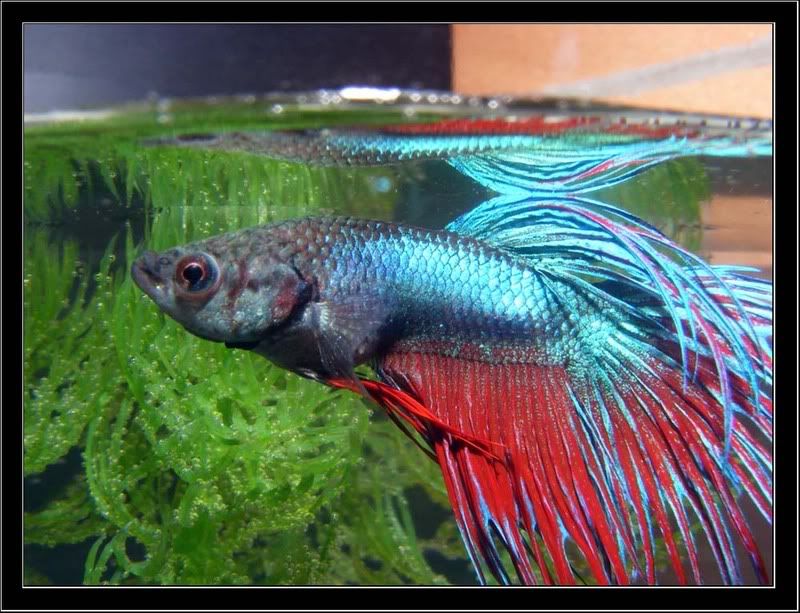
Red areas and fin rot
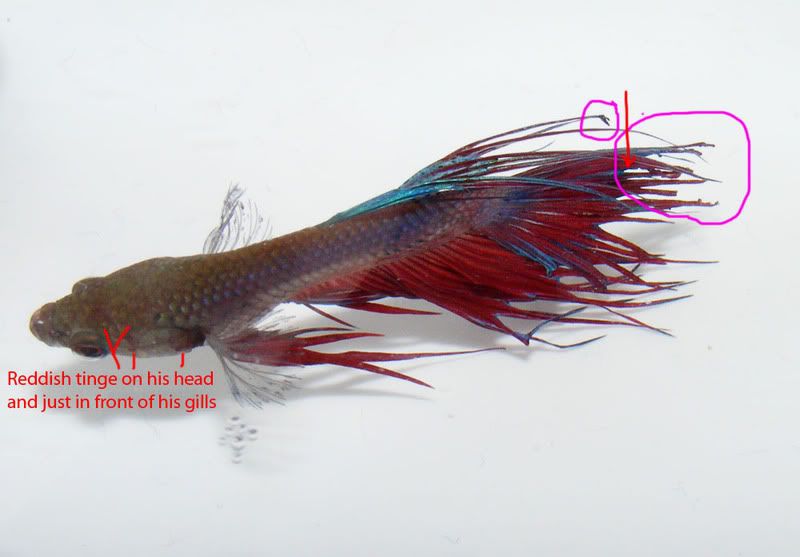
fin rot
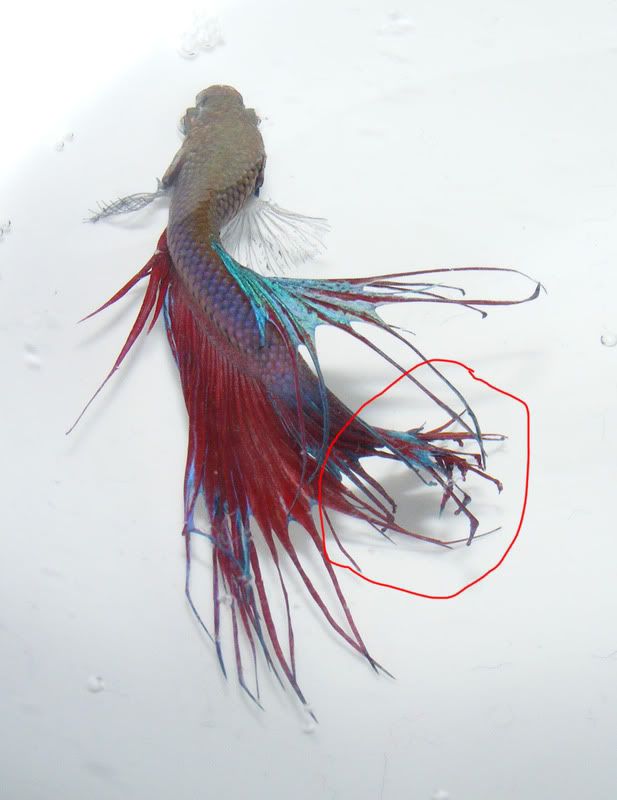
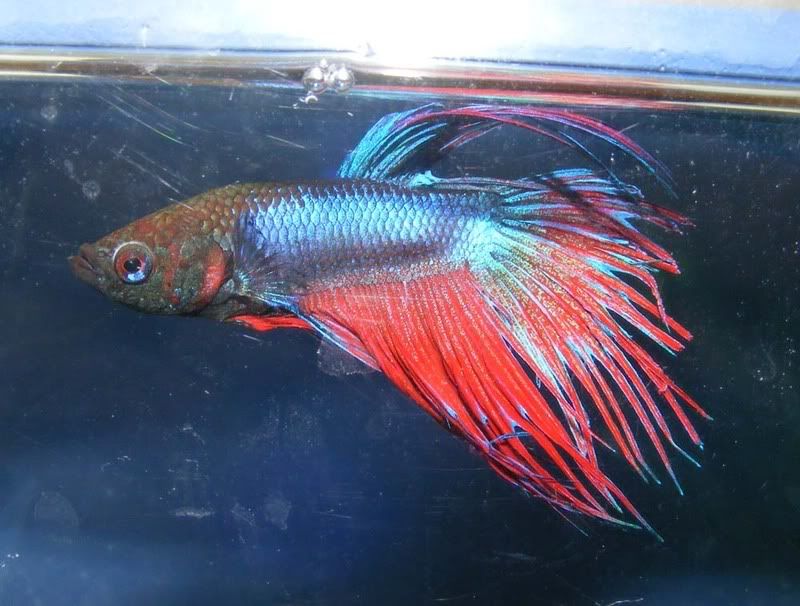
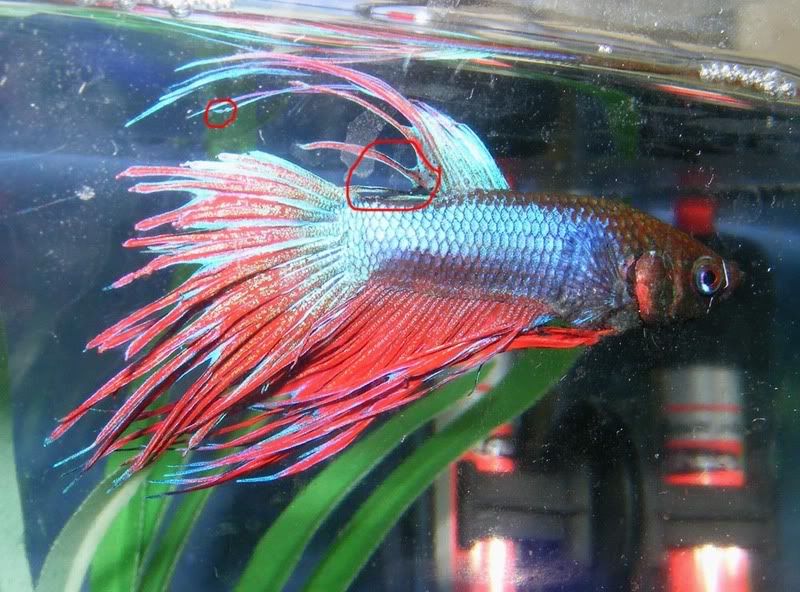
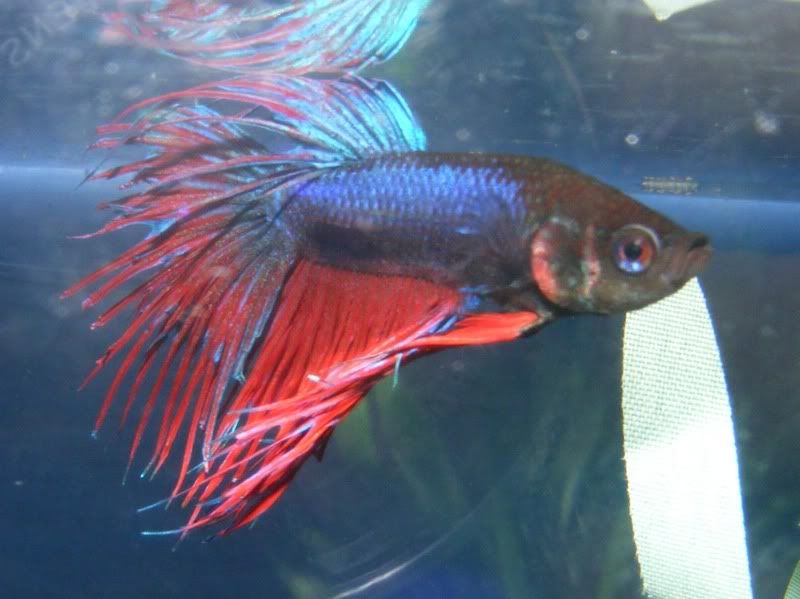
Red on the top of his head
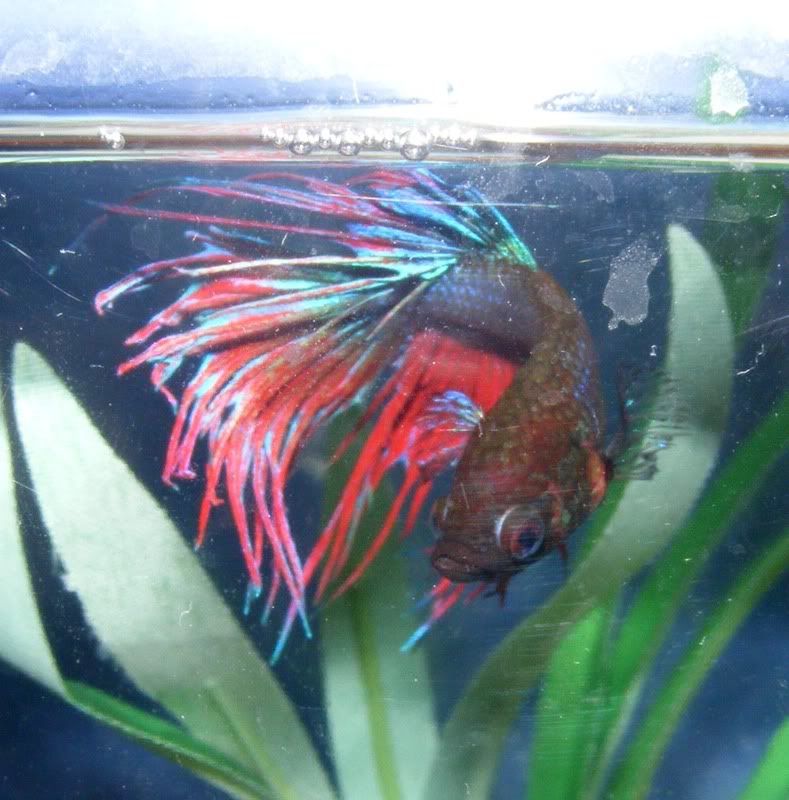
I cannot get photos of the red spots on the outer region of his eyes as theyre far too fine.
I stopped treatments recently and just kept making sure Casper (My CT betta) had clean water (with just a little bit of salt) because none of the meds helped him (I've been trying to treat him for what I thought was fin rot, as the tips of his fins were disappearing slowly (not tail biting))
Since I stopped the treatment his tail suddenly got worse (a lot worse, about 3mm now looks dead on each part), his pectoral fins have a lot more black spots and lines on them, and he has a red lining on the front of his gills and another red line in front of that, as well as tiny red spots on his eyes and a reddish tinge to his head. I looked up stress stripes which looks kinda like my boy except he only has the two red areas in front of his gills, none on the rest of the body. He used to have faint reddish tinged areas here, but noway near this obvious. He's also a lot less active but still eats OK. His overall colour has also decreased a lot (he seems very faded, not vibrant) and his fins appear transparent when out.
What is WRONG with this guy? He just does NOT get better
Information
- 2.6gal tank
- unfiltered as of yet
- has a silk plant and a smooth river rock cave
- small heater; tank at 27deg celcius
- no gravel anymore (to try and keep the tank cleaner)
- 25% water changes a day at the moment, 100% every 3-4days
- pH between 7 and 7.2
- Have tried Tetracycline, Triple sulfa, salt, an antifungal treatment
Others keep bettas in the college and haven't had any problems with the water supply- their bettas are totally healthy
Pictures;
The day I brought him home- very vibrant colours

Red areas and fin rot

fin rot




Red on the top of his head

I cannot get photos of the red spots on the outer region of his eyes as theyre far too fine.

